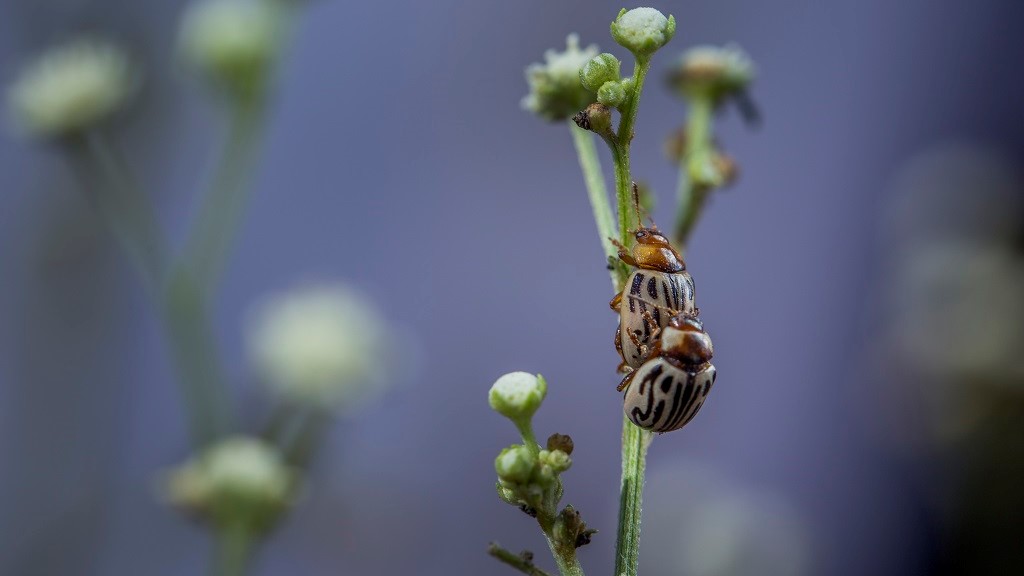
Parthenium weed (Parthenium hysterophorus) is an aggressive herbaceous plant native to north-east Mexico and is endemic in America, with no economic importance reported. This invasive weed has spread to over 50 countries, including Pakistan. Parthenium is prolific, yielding thousands of small white flowers each forming five seeds and on reaching maturity results in a huge number of viable seeds on dispersal.
Under its unique global programme, Action on Invasives, funded by UK Foreign, Commonwealth & Development Office (FCDO) and the Netherlands Directorate General for International Cooperation (DGIS), CABI in Pakistan is targeting this invasive weed, using proven successful biological control agents, some of which are already present in Pakistan and imported natural enemies. Action on Invasives champions an environmentally sustainable, cross-sectoral and regional approach to dealing with invasive species.
Zygogramma bicolorata – also known as the parthenium leaf beetle – is one of the two reported biocontrol options of parthenium already present in Pakistan. There is evidence in other parts of the world (e.g. Australia and India) to suggest that this beetle is damaging and can have some effect on plant densities. Early surveys have shown that the impact of parthenium beetle is localized and its presence only recorded in Northern Punjab, Khyber Pakhtunkhwa provinces, and Kashmir.
Throughout 2018 and 2019 extensive field visits were made to inspect the presence of Z.bicolorata across the parthenium range in Pakistan. The field visits found that the beetle was not present in Sindh and most districts of Punjab Province. In light of this, redistribution of the beetle was initiated in parthenium infested areas where it is not yet found.
Initially in October 2018, 950 beetles were released in Sindh on parthenium by CABI staff at two sites in Hyderabad and Tando Allahyar. While additional releases of 3,500 beetles were made during November 2019 at four sites in central and southern Punjab including Arifwala, Renala Khurd, Dhori Ada Multan, and Faisalabad. This was carried out by engaging community organizations and the Institute of Agricultural Extension, Education and Rural Development at the University of Agriculture Faisalabad (UAF).
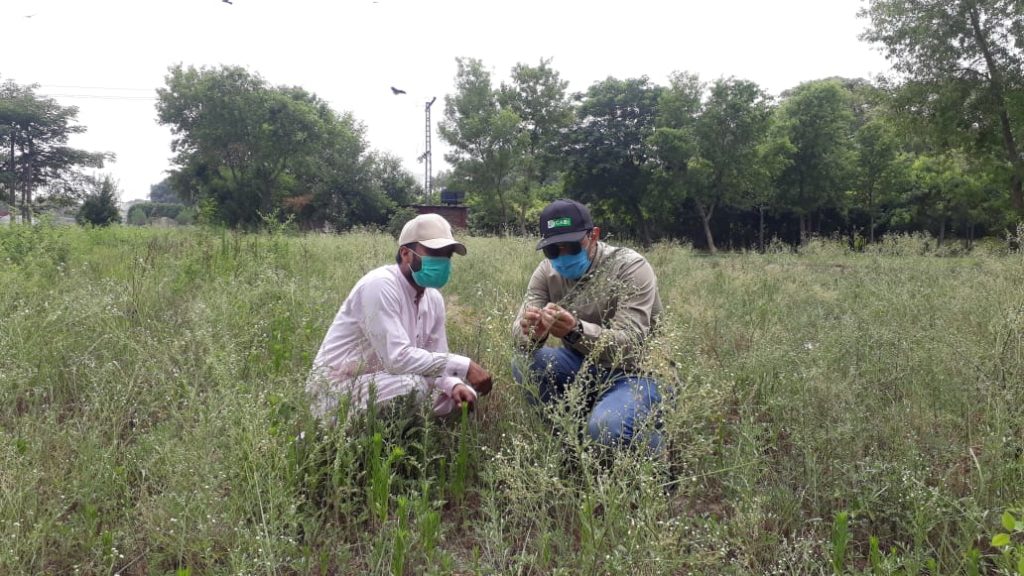
In January and September 2019 and March and June 2020 CABI scientists revisited the beetles release sites in Sindh and districts of Central Punjab respectively, to check the beetle’s establishment. Unfortunately, no beetles were recovered at the release sites in Sindh and we assume that establishment was unsuccessful. During June 2020, in districts of central Punjab, CABI scientists found beetles established at University of Agriculture farm in Faisalabad at two sites. Considerable feeding of immature and adult beetles on parthenium leaves was also noted at these sites.
Dr. Ijaz Ashraf (IAEERD – UAF) commented that the establishment of Zygogramma beetle at new sites is a real success of CABI and its partners. This will allow the beetle to spread more and help to reduce the parthenium population. Adding that in future more redistribution or releases of Zygogramma beetles should be carried out for its further spread and establishment at new sites, which will ultimately help to bring the parthenium infestation to an acceptable level.
Keeping in view the success of establishment of the parthenium leaf beetle at Faisalabad, more releases should be carried during the summer season to areas within the parthenium range with no beetles.
Read more on this topic:
Redistribution of Zygogramma bicolorata to control Parthenium in Faisalabad
Zygogramma bicolorata released at selected sites in Pakistan as biological control of parthenium
1 Comment
Leave a Reply
Related News & Blogs
CABI-led study suggests women in Pakistan need greater access to information on parthenium weed
A new CABI-led study investigated smallholder farmers’ knowledge, attitudes and practices towards parthenium and biological control in Pakistan. The study brings attention to important gendered aspects of parthenium impact. It also highlights smallhold…
27 June 2025

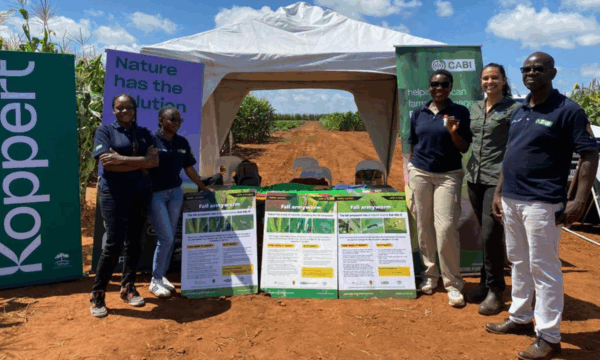
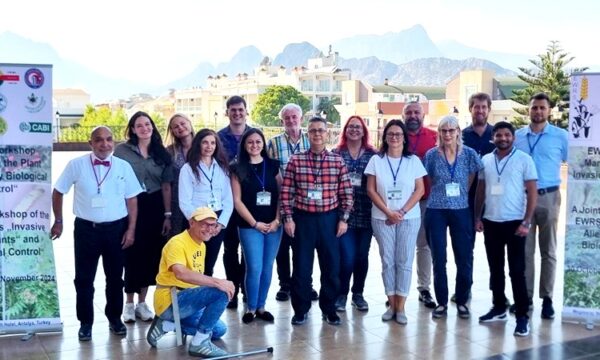

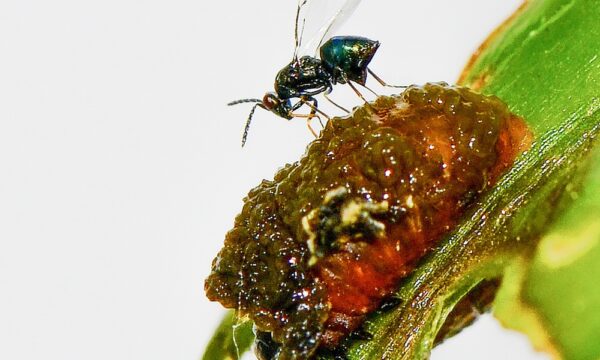
[…] reading on this amazing venture at CABI Invasives Blog (Website […]